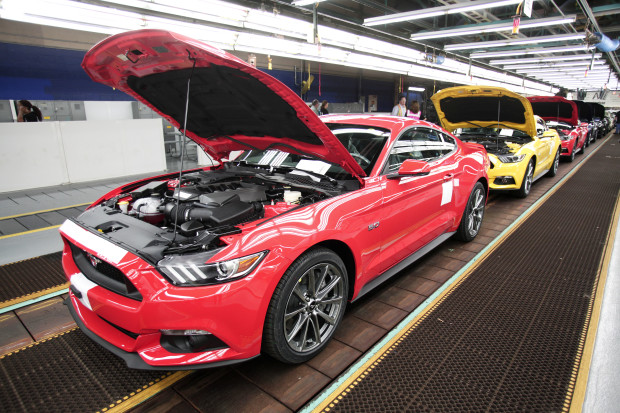
United Auto Workers members will decide this week whether to authorize their new leader, Shawn Fain, to call a strike against Detroit automakers when the union's contract expires in September. If the strike goes through, analysts at Anderson Economic Group (AEG) said, the result might be a total economic hit of around $5 billion over the course of 10 days.
The union's previous six-week strike against General Motors (GM) -) in 2019 instigated a single-quarter recession in Michigan, according to AEG's CEO Patrick Anderson. That strike involved 48,000 workers at around 50 plants; the pending strike, however, could implicate more workers (143,000) at more companies and more plants.
DON'T MISS: UPS Strike: Why Your Packages Could Go Missing Soon
"Even a short strike would impact economies throughout Michigan and across the nation,” Anderson said.
The union is looking for 40% raises, as well as the reinstatement of cost-of-living adjustments and greater stability for temporary workers. The new push comes amid concerns over lower employment numbers at new EV factories compared to traditional ones.
Mark Fields, the former Ford (F) -) president and CEO, thinks that there is a "much higher probability" that the strike will go through this time due in large part to the union's bold new leader. Fain's leadership comes at a time when automakers are going through a "once in a century changeover in propulsion systems," which have them dealing with issues of higher costs and lower margins.
More Tesla:
- Why Tesla stock is going through the roof -- and where it could go next
- Elon Musk's latest Tesla announcement could shake up the entire EV industry
- Elon Musk has a 'purity' around motivation for game-changing EV deal
"It's a setup for a very contentious set of discussions," he told CNBC.
Fields, noting that this is Fain's first national negotiation, said that the UAW leader has been very transparent to members about his expectations. But Fields said that might end up backfiring.
"That may paint him into a corner. He may get expectations so high that it might be very difficult when he brings a contract back for the rank and file to ratify it," Fields said, adding that Fain was only elected by a margin of around 500 votes. "He's playing a bit of a dangerous game here, but at the same token, he feels he has a mandate. As one of the past union leaders said, it's easy to take a union out on strike but it takes a leader to bring them back to work."
The negotiations come just a few weeks after UPS and the Teamsters union narrowly avoided a strike in a deal worth about $30 billion.
"The UAW has always felt that they were the benchmark in the union world. They're looking at things like the UPS agreement, but there's a big difference: those businesses are business-to-business businesses," Fields said. "In the automotive world, consumers have many choices. If he decides to win the battle over this negotiation but lose the war over time in terms of competitiveness, that means less workers for them.
"Wages don't matter much if you don't have jobs."







